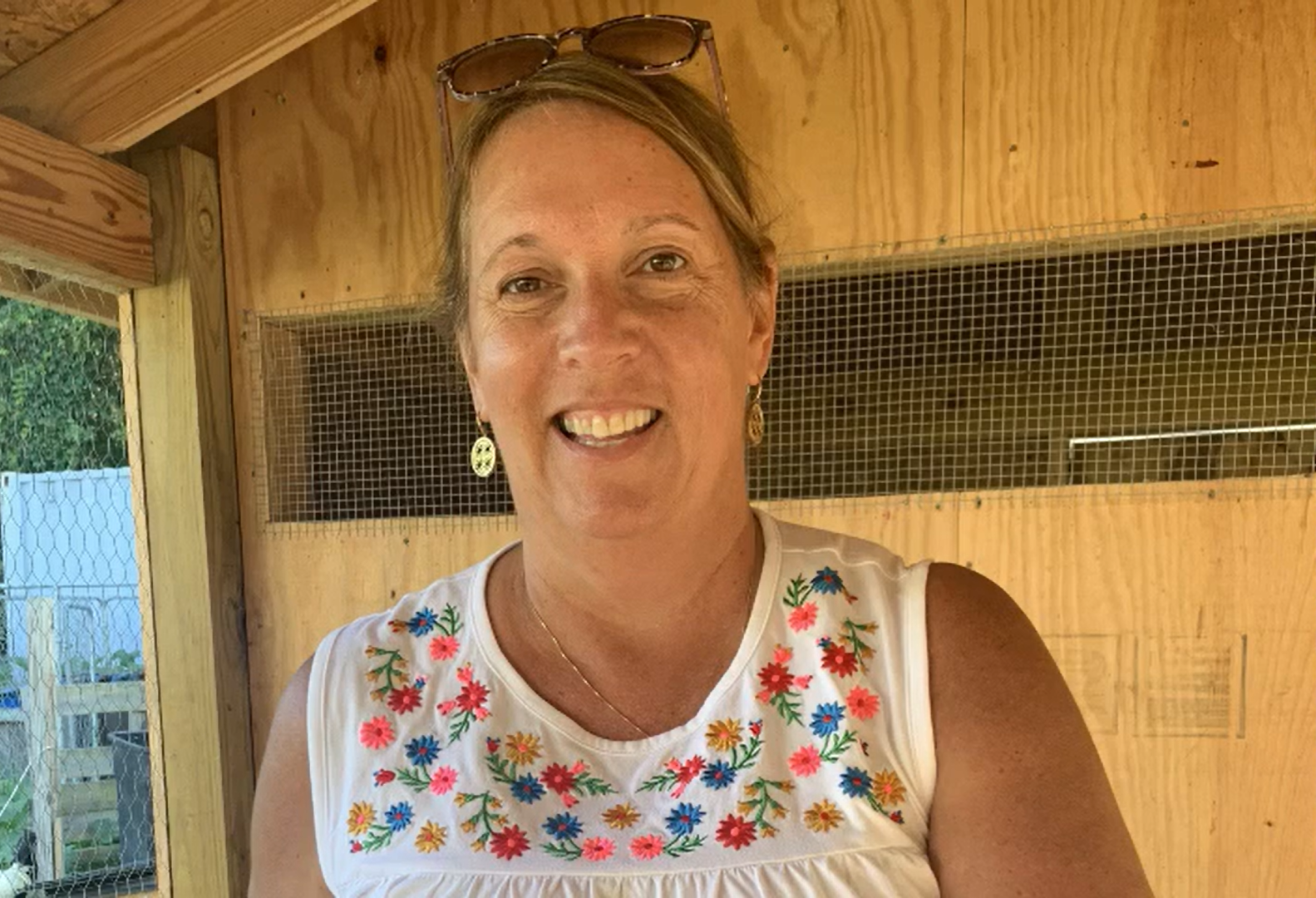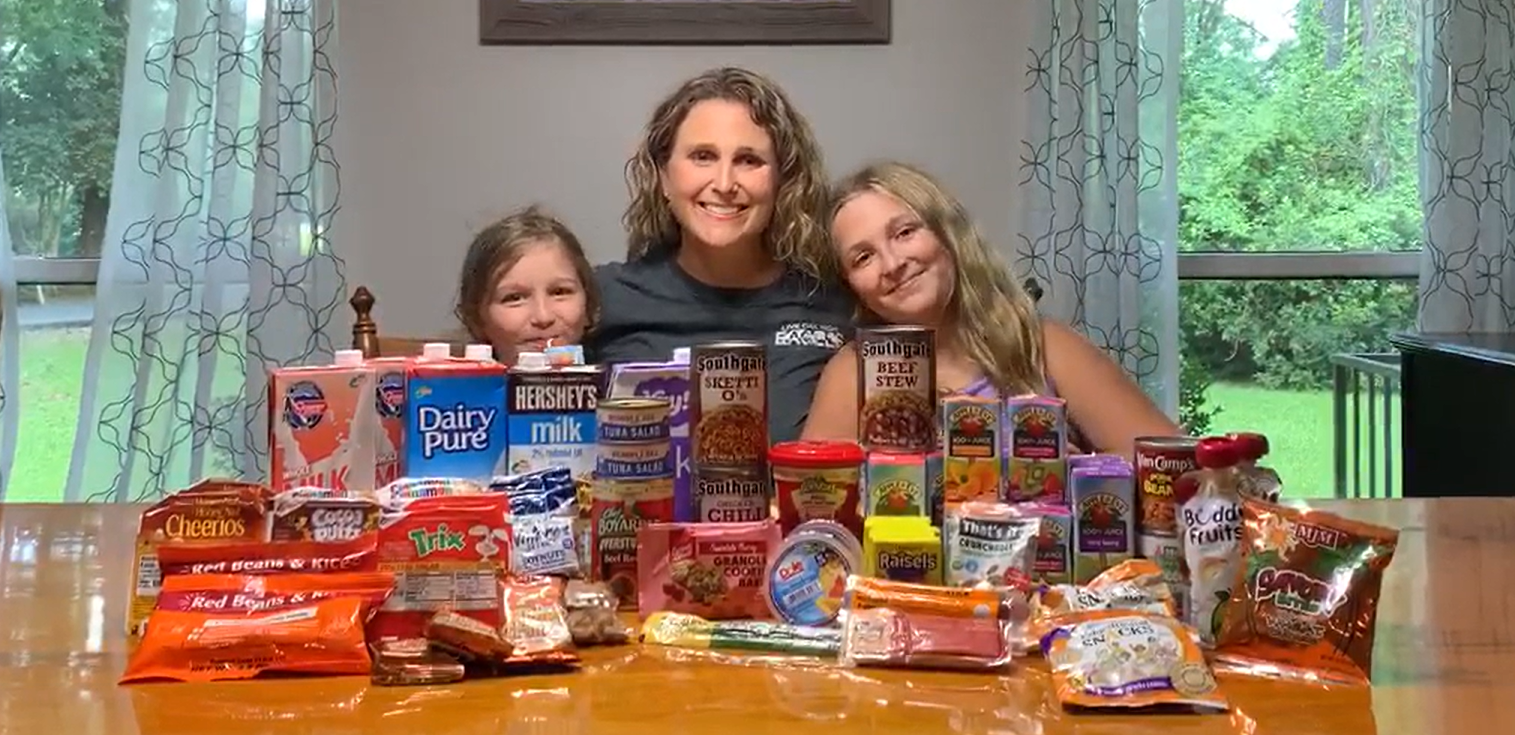Filling the Gap
Families across the United States rely on the consistency of school meals to help fill the gaps of their children’s nutrition needs. The Summer Food Service Program (SFSP) offers an extension of these programs into the months when school is out of session. However, those in rural communities face barriers such as transportation and distance in accessing these traditional summer programs. Organizations working to create more just and equitable food systems, like our team at the Baylor Collaborative, are exploring innovative and sustainable programs to solve these challenges.
Michelle Saletan
Former Cafeteria Manager at St. James-Santee Elementary School
"One of our COVID feeding sites was in McClellanville, South Carolina, which is considered a rural school. We implemented the bus delivery system, as we knew there were many parents, grandparents, and caregivers without transportation. On our first trip out we came across a grandmother who said she was so grateful for us. She had walked from the bus stop with two young grandchildren, around the ages of 3 and 5, and left the two oldest at the house. When we left the stop on the bus, we passed this grandmother walking back to her house. She was about half a mile away from the stop, and we found out she had about another half mile to walk. March can be warm in South Carolina, let alone walking with two young children and a bag full of meals."
A New Model for Addressing Rural Child Hunger
In 2019 we partnered with the United States Department of Agriculture (USDA) and McLane Global to begin a three-year demonstration project in specific rural-school districts in West and East Texas to research whether a summer meal delivery system is feasible and sustainable. The concept is simple: a weekly package of nutritious meal items that meets USDA Child Nutrition guidelines would be delivered directly to the homes of children in rural communities. Over the course of the Meals-to-You (MTY) program and in continued partnership with McLane Global, and in new partnership with PepsiCo Food for Good and Chartwells Higher Education, more than 141,000 families received meals during the summer months; thereby, filling the gap created when the school year ends.
In 2023, the Baylor Collaborative completed its fifth and final year of the MTY Project. Over the past five years, this program served more than 2.5 million meals to nearly 31,000 children in school districts across Texas, Alaska, Utah and New Mexico. During the COVID-19 pandemic, when the program quickly scaled up to expand access(emergency or eMTY), more than 270,000 children received nearly 40 million meals across 43 states and Puerto Rico between April and September 2020.
Through the Years
141,216
Families Served
41,291,730
Meals Served
2,190,348
Boxes Delivered
Evaluations by the Urban Institute have shown that the MTY program was as effective in reducing food insecurity over the summer months as the National School Lunch Program. The program's success has contributed to the adoption of new federal legislation in 2023, allowing families in rural America to have access to summer meals through home delivery programs like Meals-to-You and other convenient options.
Meals-to-You Pilot Evaluation (2019-23)
Interested in operating a rural non-congregate meal program in your community? Contact us today to learn more!
James Dallas
Principal, E.B. Ellington Elementary School
"On March 13, 2020 the E.B. Ellington School community experienced perhaps one of the most consequential episodes that many of us have ever endured in our lives. The COVID-19 pandemic unnerved us in ways that we have never been challenged before. Prior to the pandemic, many of our working families struggled to provide those basic necessities that some of us take for granted. Ensuring that a hot meal is available to their children each day, or making certain that the electricity remains on, is one of those things that parents grapple with daily. Knowing that their child has access to a hot meal two-to-three times per day allows the mind of several parents to rest easy. However, with the onset of COVID-19 the reality became even more bleak. As schools shut down and life as we know it was altered in unimaginable ways, the Emergency Meals-to-You Program was truly a godsend. Ensuring that our children and others in the community who needed food were able to get it during the coronavirus epidemic. This [was] truly a challenging time for so many people across this country, but certainly here in our backyard. But it was reassuring to see our government offset this challenge by making sure that no one in this country went hungry during these unprecedented times. I'm certainly grateful, and I know that I speak for my community regarding the goodness and grace that has, and continues, to be shown to each of us.


